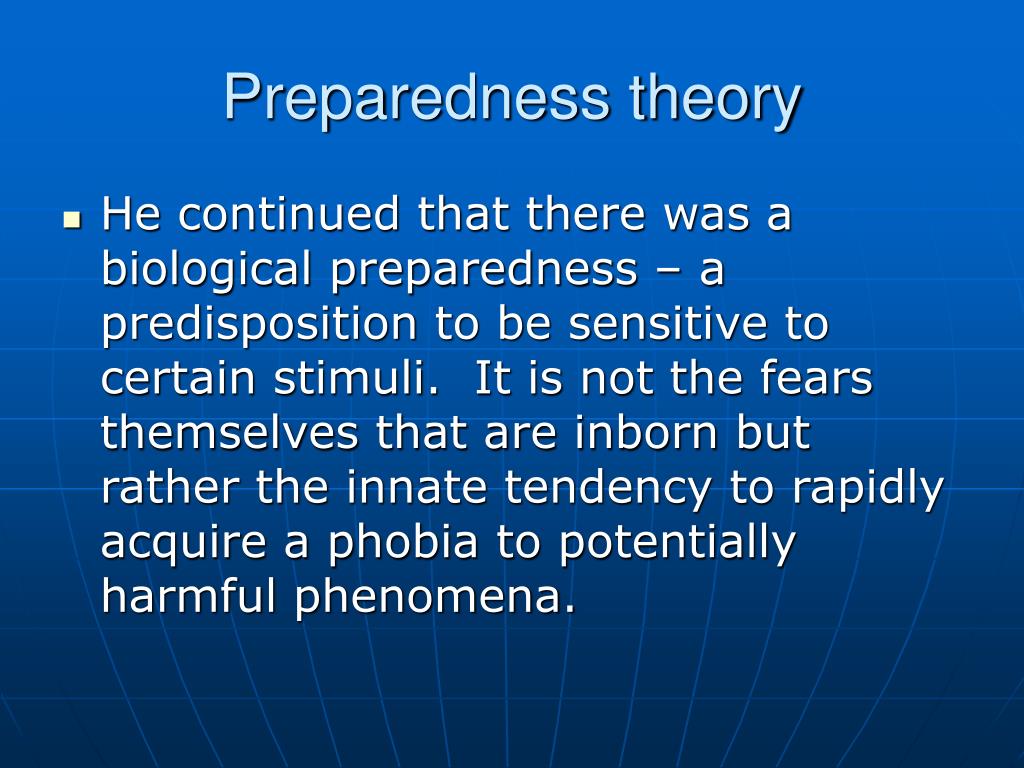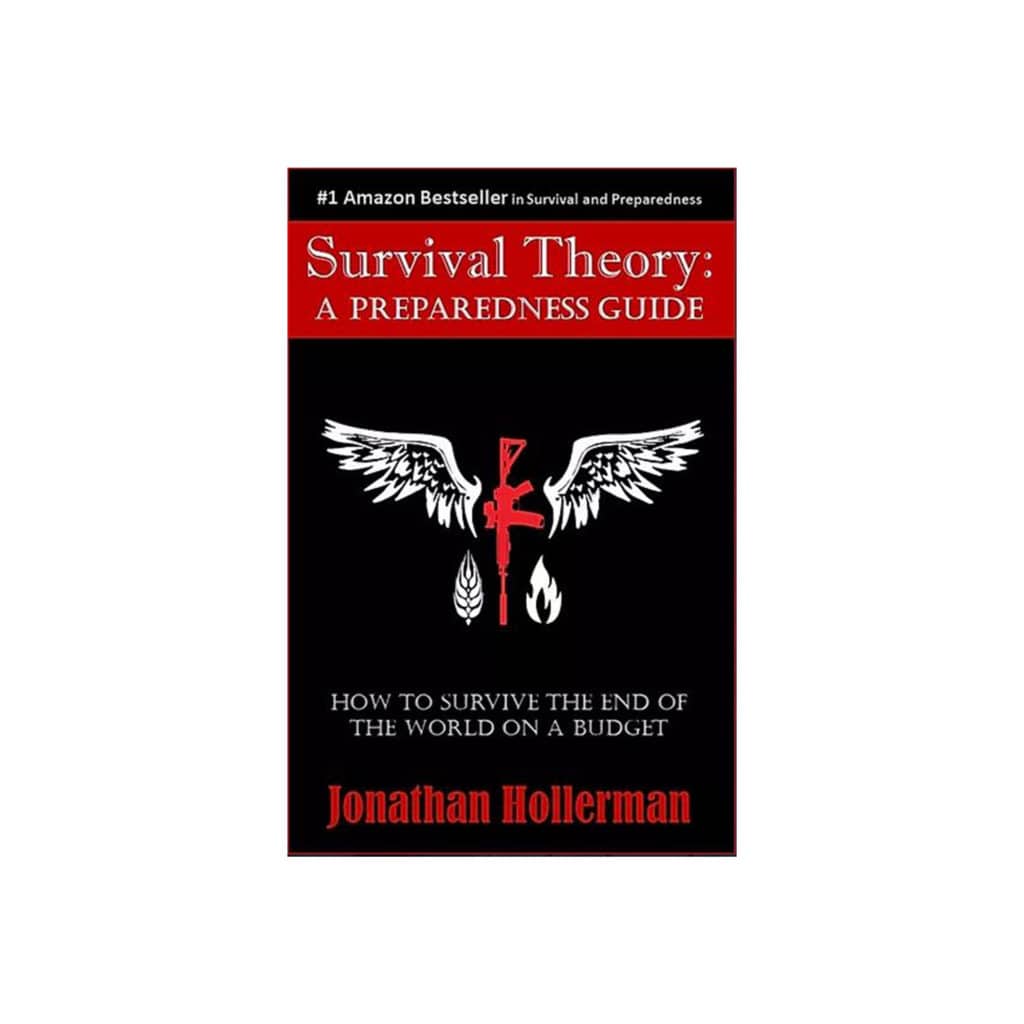
Navigation menu
10/05/ · Heinrich van den Berg / Oxford Scientific / Getty Images Biological preparedness is the idea that people and animals are inherently inclined to form associations between certain stimuli and responses. This concept plays an important role in learning, particularly in understanding the classical conditioning process 08/11/ · Martin Seligman proposed preparedness theory as a way of explaining fears and phobias as providing an evolutionary advantage and therefore be passed on by natural selection. Although biological preparedness spawned from research examining fear, researchers have since used the theory to explain phenomena ranging from taste aversion to industrial design The preparedness theory of phobia holds that humans are biologically prepared to learn to fear objects and situations that threatened the survival of the species throughout its evolutionary history (Seligman, ). Biological preparedness is postulated to be responsible for the rapid acquisition, irrationality, belongingness, and high resistance to extinction considered

Preparedness theory: general characteristics
10/05/ · Heinrich van den Berg / Oxford Scientific / Getty Images Biological preparedness is the idea that people and animals are inherently inclined to form associations between certain stimuli and responses. This concept plays an important role in learning, particularly in understanding the classical conditioning process 02/07/ · The Theory of Planned Behavior (TPB) proposes that preparedness results from interaction between people’s attitude toward preparedness, their subjective norms (belief that significant others [e.g. parents, friends] hold favourable attitudes towards preparedness), and their beliefs about the behavioural control they can exert over adopting protective actions Disaster preparedness requires a thorough understanding of the factors that influence performance or nonperformance of disaster preparedness behaviors (DPB). The major aim of this research was to further our understanding of DPB Author: Mehdi Najafi, Ali Ardalan, Ali Akbarisari, Ahmad Ali Noorbala, Helen Elmi

Buying options
Preparedness theory today continues be explored and refined. Marks () suggested the concept of prepotency to preparedness, which specifies that species selectively respond to particular stimuli, a predisposition further demonstrated in preparedness, where organisms also learn certain responses to particular stimuli (Marks, ) Evolutionary Theory and Preparedness Evolution and Phobias. The theory of evolution and preparedness can help explain biologically why people have phobias. Preparedness. Preparedness is the tendency to learn some associations more easily, quickly and permanently than others. Bennet Levy and Marteau Disaster preparedness requires a thorough understanding of the factors that influence performance or nonperformance of disaster preparedness behaviors (DPB). The major aim of this research was to further our understanding of DPB Author: Mehdi Najafi, Ali Ardalan, Ali Akbarisari, Ahmad Ali Noorbala, Helen Elmi

Associated Data
08/11/ · Martin Seligman proposed preparedness theory as a way of explaining fears and phobias as providing an evolutionary advantage and therefore be passed on by natural selection. Although biological preparedness spawned from research examining fear, researchers have since used the theory to explain phenomena ranging from taste aversion to industrial design Evolutionary Theory and Preparedness Evolution and Phobias. The theory of evolution and preparedness can help explain biologically why people have phobias. Preparedness. Preparedness is the tendency to learn some associations more easily, quickly and permanently than others. Bennet Levy and Marteau 7 rows · Disaster preparedness is defined as actions that ensure resources necessary to carry out an Author: Mehdi Najafi, Ali Ardalan, Ali Akbarisari, Ahmad Ali Noorbala, Helen Elmi

Biological Preparedness Working With Classical Conditioning
08/11/ · Martin Seligman proposed preparedness theory as a way of explaining fears and phobias as providing an evolutionary advantage and therefore be passed on by natural selection. Although biological preparedness spawned from research examining fear, researchers have since used the theory to explain phenomena ranging from taste aversion to industrial design Preparedness theory today continues be explored and refined. Marks () suggested the concept of prepotency to preparedness, which specifies that species selectively respond to particular stimuli, a predisposition further demonstrated in preparedness, where organisms also learn certain responses to particular stimuli (Marks, ) Disaster preparedness requires a thorough understanding of the factors that influence performance or nonperformance of disaster preparedness behaviors (DPB). The major aim of this research was to further our understanding of DPB Author: Mehdi Najafi, Ali Ardalan, Ali Akbarisari, Ahmad Ali Noorbala, Helen Elmi
No comments:
Post a Comment